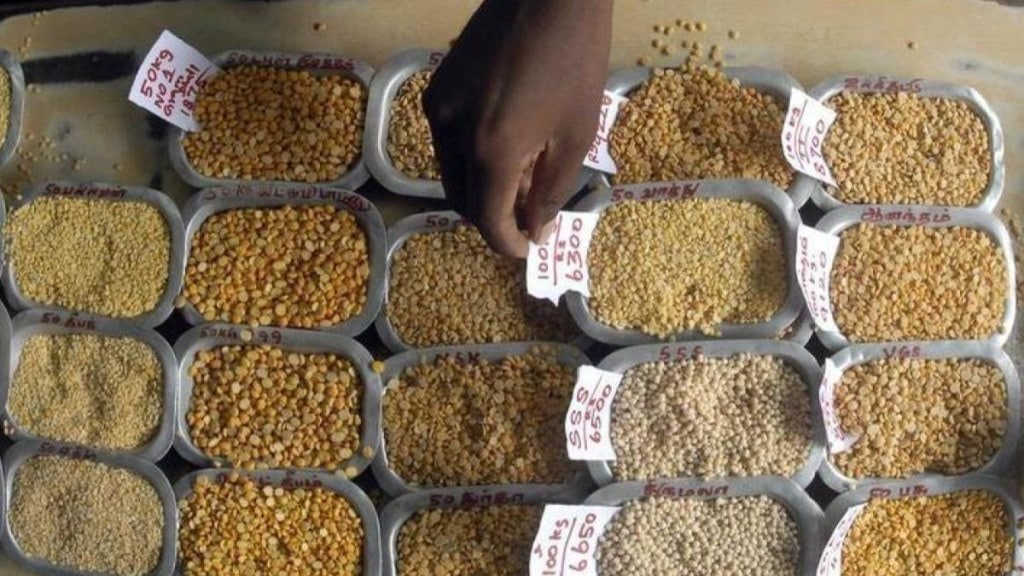Surge in duty free and cheap imports from Myanmar, Mozambique and Tanzania and robust harvest prospects of tur, a premium variety of pulses, has led to drastic fall in the mandi prices, which is ruling significantly below the minimum support price (MSP).
Trade sources told FE with mandi prices dropping to Rs 6500/quintal, 14% below the the MSP of Rs 7550/quintal, the kharif sowing of pulses variety so far has been below the last year level’s as farmers have started to shift more remunerative crops such as oilseeds.
Mandi prices are currently ruling 18% and 24% below the tur MSP for imports from Myanmar and Mozambique respectively.
Tur sowing so far has declined by over 5% to 3 million hectare till July 18, on year.
Traders POV
Traders say that prices are ruling below MSP, despite the two government agencies – Nafed and NCCF – buying 0.6 million tonne (MT) of tur from farmers in the current season, a record since 2017-18 season, under the price support scheme of the agriculture ministry.
In the first two months of FY26, the import from mostly Myanmar, Mozambique, Malawi and Tanzania have surged to 0.18 MT, an increase of 54% on year. India imported over 1.1 MT of tur from several African countries and Myanmar in 2024-25.
“Because of negative sentiments due to fall in prices, some farmers are opting towards more remunerative prices,” Nitin Kalantri, managing director, Kalantry Food Products, a Latur, Maharashtra-based pulses processor, said.
According to the department of consumer affairs, modal retail prices of tur or arhar have dropped 29% to Rs 120/kg on Wednesday compared to prices prevailed a year ago.
The retail inflation in tur (arhar dal) had been in the negative zone since the beginning of the year. In June inflation declined 25.22% because of a high base effect as fall in prices due to a record harvest after two years.
Imports and output
The agriculture ministry, in its third advance estimate recently, had estimated tur output at 3.56 MT in the current crop year, higher than the 3.41 MT in 2023-24 crop year (July-June). However, trade sources have projected output to be in the range of 10% to 15% higher than the government’s projection in the current crop year.
The government, at the beginning of the year, had extended the free import policy for tur or pigeon peas by a year, until March 31, 2026.
India had signed an MoU with Mozambique for import of 0.2 MT of tur annually for five years when the retail prices of tur skyrocketed to Rs 200 a kg in 2016. This MoU was extended for another five years in September, 2021.
In 2021, India entered into a MoU with Malawi for the import of 50,000 tonne tur per annum for next five years. Under a MoU, India is committed to import 0.1 MT of tur and 0.25 MT of urad from Myanmar till 2026.
